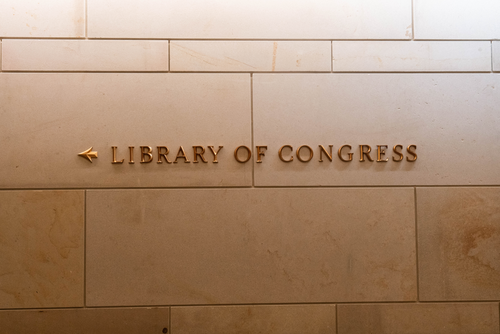
"The Visa-Mastercard duopoly controls about 80% of the market share, allowing them to raise fees indiscriminately and with no formidable opposition," contends Doug Kantor, general counsel for the National Association of Convenience Stores
Doug Kantor is general counsel for the National Association of Convenience Stores.
The Senate Judiciary Committee recently held a hearing featuring Visa and Mastercard executives alongside merchants who testified about the detrimental impacts credit card swipe fees have on Americans who are already financially strained amid record inflation. I was among the witnesses.
Representing the National Association of Convenience Stores (NACS), I made clear to Congress that without increasing competition in the payments marketplace, the Visa and Mastercard duopoly would continue to indiscriminately raise swipe fees on U.S. businesses and their consumers as they just did in April.
Unbeknownst to most Americans, businesses are charged a fee every time a credit card is swiped, tapped, or inserted. More often than not, retail businesses, which operate under notoriously low profit margins, are forced to pass this cost onto consumers, typically in the form of higher prices on goods or services. This means that every single customer, regardless of whether they use a credit card for a purchase, absorbs this fee.
With inflation reaching levels not seen since the early 1980s, businesses, and by proxy their customers, can little afford to pay even more for goods and services. Gas prices are at an all-time high, with families expected to incur an additional $2,000 in annual costs. Basic items like milk, meat, and diapers have skyrocketed in price. Family budgets are strained or entirely shattered.
The swipe fees centrally set by Visa and Mastercard are a percentage of a purchase price so they go up with inflation and act as an inflation multiplier. During its last two quarterly earnings calls, Visa made clear that it is a “beneficiary” of inflation and that inflation is a “positive” for it. That is not true for consumers and the rest of the economy.
And, as my fellow witness Ed Mierzwinski of the U.S. Public Interest Research Group (PIRG) pointed out before the Senate Judiciary Committee last month, swipe fees impose “the greatest hardship on the most vulnerable consumers – the millions of American consumers without credit cards or banking relationships.”
This isn’t just anecdotal. The Hispanic Leadership Fund (HLF) on Tuesday released a new report detailing how swipe fees disproportionately impact lower-income Americans and often force them to subsidize the consumption of those who are better off.
For example — as a result of swipe fees — American families making less than $75,000 a year send $3.5 billion to families making over $75,000 a year, the HLF report said. And more than $1.9 billion of those funds goes into the pockets of families making over $150,000 a year.
This disparity is even starker when broken down by ethnicity, according to the HLF report. Black families, for example, are disproportionately impacted by current credit card schemes, with the average African American household losing more than $1 billion a year from these transactions.
How is this possible?
For one, retailers typically set a single price regardless of whether a customer uses cash or credit, meaning price increases put in place to offset credit card swipe fees are absorbed by all consumers, not simply those who use plastic. Second, swipe fees help subsidize premium credit card reward benefits, which are significantly greater for and more often used by those with higher incomes.
According to the HLF, Black families in America spend nearly $60 a year to subsidize the rewards of higher-income individuals and, in total, these families lose over $1 billion each year from these transfers.
Unfortunately, merchants and consumers have little choice but to accept this reality. The Visa-Mastercard duopoly controls about 80% of the market share, allowing them to raise fees indiscriminately and with no formidable opposition.
Just this last year, merchants paid a collective $138 billion to accept card payments, jumping from $110 billion in 2020. For the convenience stores I represent, fees spiked nearly 26.5%, and the rate of increase this year is looking even more stark amid inflation.
For an industry averaging around a 2.5% profit margin, credit card swipe fees ranging anywhere from 1.5% to 4% on a transaction can mean the difference between turning a profit or taking a loss, i.e. life or death for a business. This lack of wiggle room makes recent swipe fee hikes even more detrimental as merchants find it difficult to determine exactly how the rate changes will hit their products.
Thankfully, Congress is beginning to pay attention. This recent Senate Judiciary hearing came on the heels of a bipartisan congressional letter sent to the CEOs of Visa and Mastercard, urging them to cancel their latest round of swipe fee hikes.
But we must take action. A whopping 94% of Americans are concerned about inflation. Many are turning their eyes to Washington for relief.
It is imperative that Congress holds Visa and Mastercard accountable for their anticompetitive swipe fees, which have exacerbated inflation costs. I urge lawmakers to look across party lines and propose legislation that expands competition so that American consumers and the economy don’t keep paying more than they should.
By Doug Kantor on June 17, 2022
Original link
